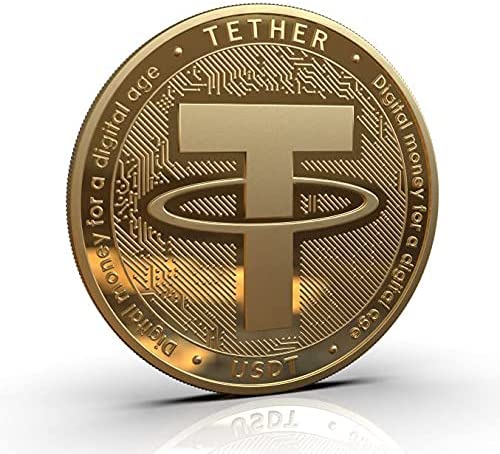
“Xapo Bank is the only regulated bank in the world which offers a USD account with stablecoin rails.”

Xapo Private Bank has become the first bank in the world to integrate Tether (USDT) payment rails, according to the announcement of the fully licensed private bank that combines traditional banking with access to Bitcoin and stablecoins.
Building on its existing USDC rails that were launched in March, the bank is now enabling members to leverage the world’s most widely adopted stablecoin for payments as an alternative to SWIFT rails.
USDT is the world’s most used stablecoin and one of the most traded cryptocurrencies by volume, with a market cap of $82 billion USD, having pioneered the digital dollar concept.
“Xapo Bank is the only regulated bank in the world that offers a USD account with stablecoin rails”
Seamus Rocca, CEO of Xapo Bank said: “Xapo Bank is the only regulated bank in the world which offers a USD account with stablecoin rails. This is a unique offering that combines the compliance and safety of a traditional bank, with the speed, efficiency and breadth of use of USDT. By growing our payment rail options, we are committed to eliminating the timely and often expensive deposit and withdrawal processes into regular banks. We are empowering our members to grow their wealth and access and spend it in a seamless manner.”
Xapo Private Bank has seen a strong appetite for the efficiency of stablecoin deposits and withdrawals amongst its members, many of whom are based in emerging markets.
Since enabling USDC deposits in November it has received $48 Million in USDC deposits, and enabled $4.5M in USDC withdrawal since the function went live in March. It has also experienced an 19% increase in member onboarding requests since the USDC withdrawal function went live in March.
By allowing members to deposit and withdraw using USDT with no fees charged, Xapo Private Bank is bringing its 4.1% annual interest rate return on deposits to the attention of a new cohort of potential members who are looking for an alternative to SWIFT payments.
Similarly to its USDC offering, Xapo Private Bank is offering a 1:1 conversion rate from USDT to USD. All USDT deposits received by Xapo Bank are automatically converted to USD, meaning that members can benefit from a 4.1% annual interest rate on USD deposits.
Xapo Bank guarantees USD deposits up to USD equivalent of €100,000
A fully licensed and regulated bank, Xapo Private Bank is a member of the Gibraltar Deposit Guarantee Scheme, meaning that Xapo Bank guarantees its members’ USD deposits up to the US dollar equivalent of €100,000.
Xapo Private Bank does not take any risks with deposits received using USDT. All such deposits are automatically converted to USD and deposited into the member’s account. Unlike traditional banks, Xapo Private Bank does not lend and therefore does not rely on fractional reserve banking to make money as its core business model. Instead, it has all its customers’ funds in reserve and invested in short term liquid assets in order to pass the benefit of that interest earned, to its customers.
In addition to the USDC and USDT payment rails, Xapo Bank previously integrated with the Faster Payment System (FPS) to activate support for GBP settlement for account deposits and withdrawals. It also announced an integration with Bitcoin’s Lightning Network, in collaboration with Lightspark, earlier this month.
Xapo Bank welcomed EU’s MiCA framework
As the EU Parliament approved the MiCA regulatory framework in late April 2023, Joey Garcia, Director and Head of Public Affairs at Xapo Bank, commented on the move: “We very much welcome the raising of standards for Crypto Asset Service Providers across the EU having operated within a prudentially supervised VASP Framework which came into place in 2018 in Gibraltar. The EU has also closely followed the principle of ‘same activity, same risk, same rules’ and of course while we fully support the creation of a secure environment for digital finance, it will be interesting to see whether the ‘same rules’ can be applied proportionally to a young and innovative industry.
“Also beyond MiCA, the wider implications around the EU Digital Finance package will also need to be considered by the industry. The question of whether the capturing of unhosted wallet transfers within the EU Transfer of Funds Regulation, can be efficiently introduced, or the implications of the proposed AML Regulations under the supervision of the new anti-money laundering agency restricting transfers in excess of EUR 1,000 from an unregulated or self hosted platform.
“What will the implications be for DeFi integrations and crossovers? Similarly, while the categorisation of virtual assets in new categories is also constructive and forward looking, are the rules proportionate to the industry? do they introduce a technology infringement where the use of blockchain based systems will essentially trigger financial services regulation, regardless of the activity? Will all European authorities interpret the Regulations in the same way? There will be lots of interesting developments over the next few years without question. From our point of view, operating to standards around governance, risk management, the protection of client assets, resilience, customer care and market integrity are not new concepts for the regulated Xapo VASP so we welcome the introduction of higher standards that go beyond simple AML registrations.”



















